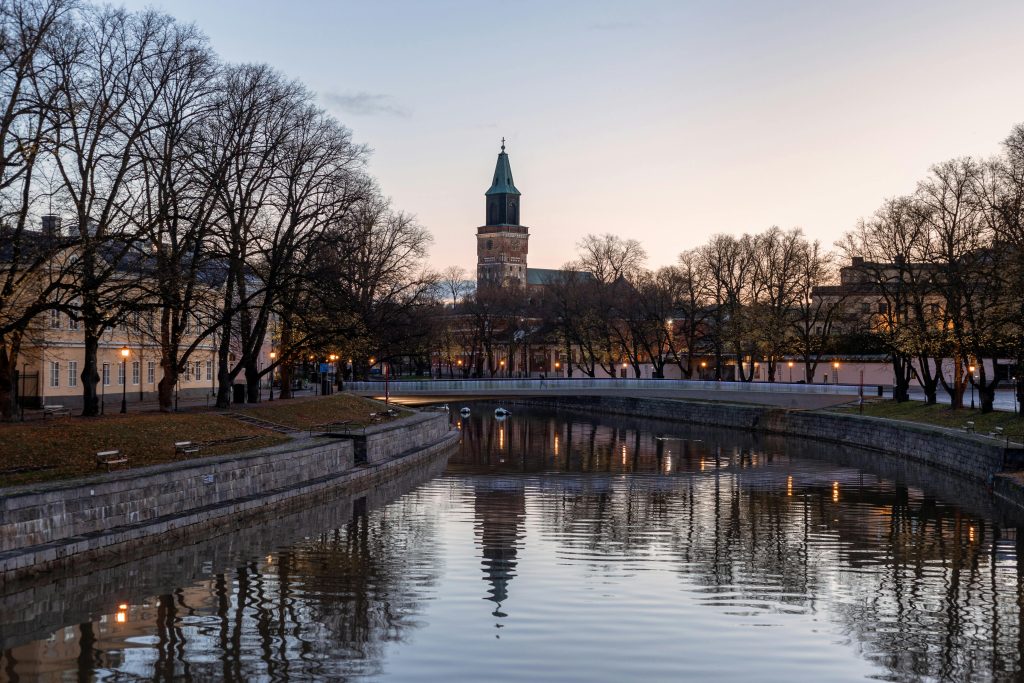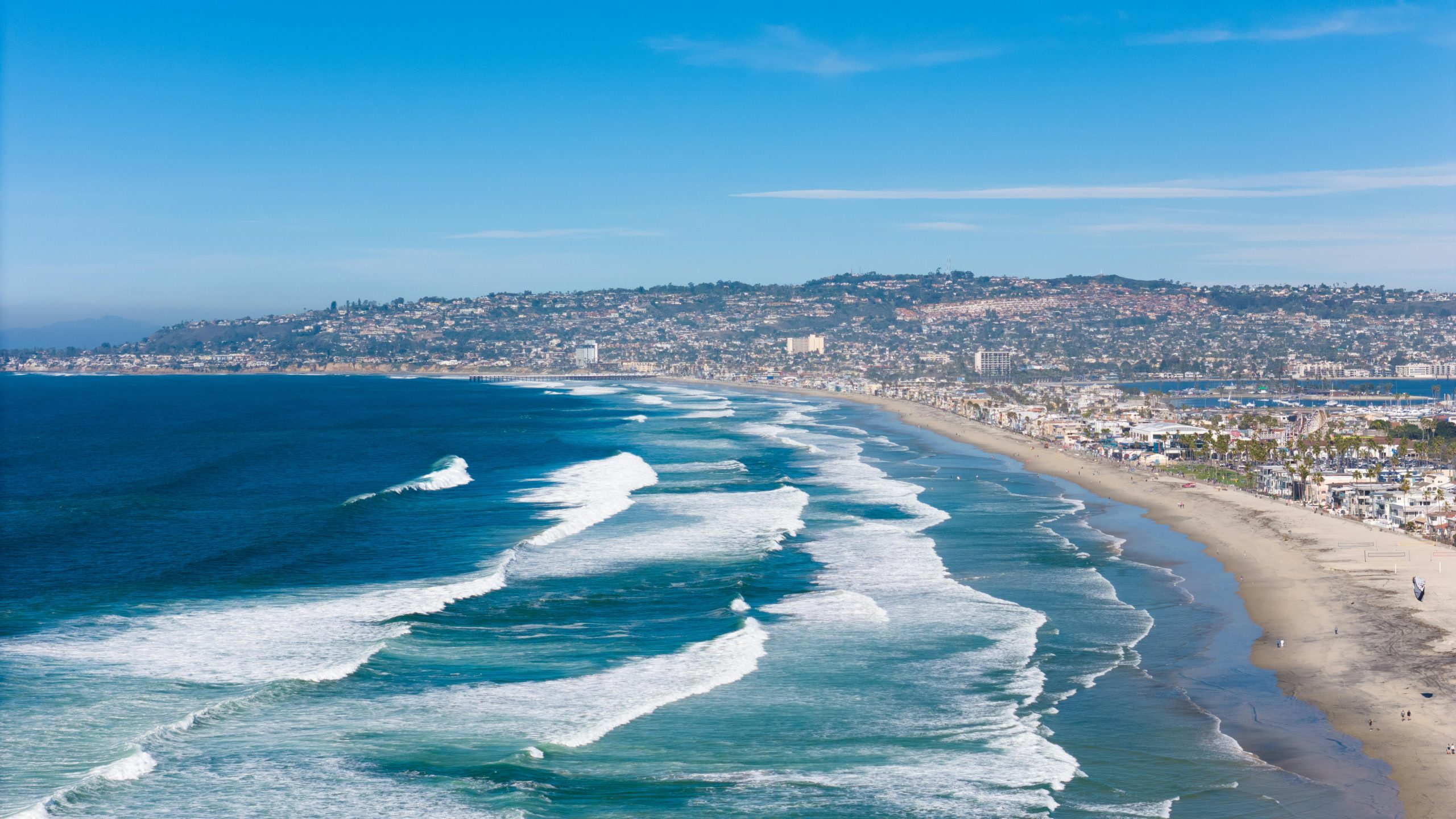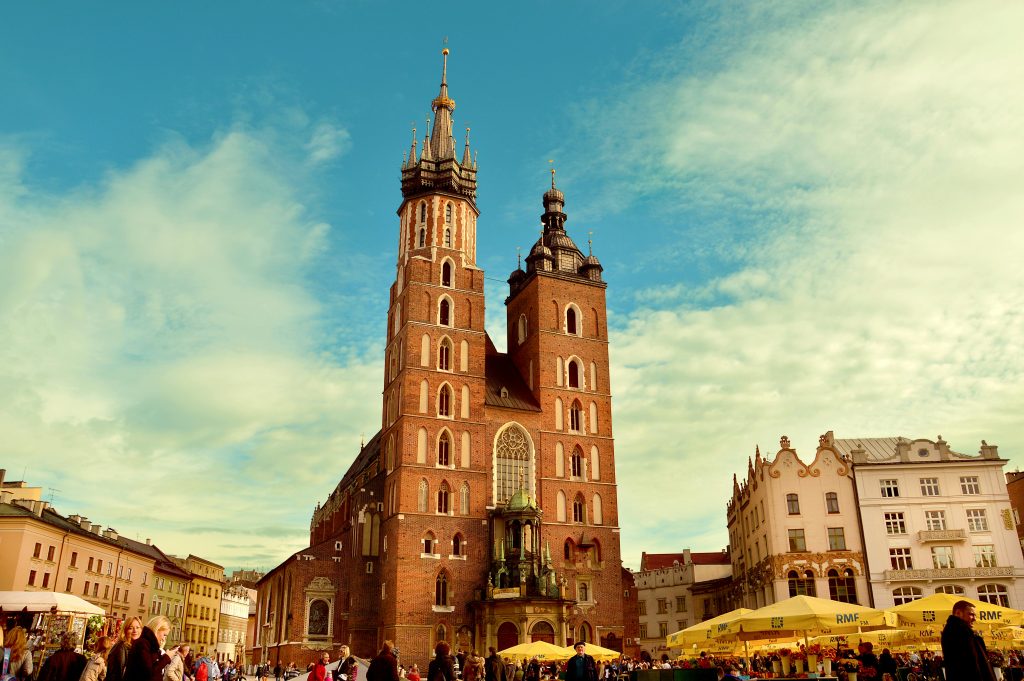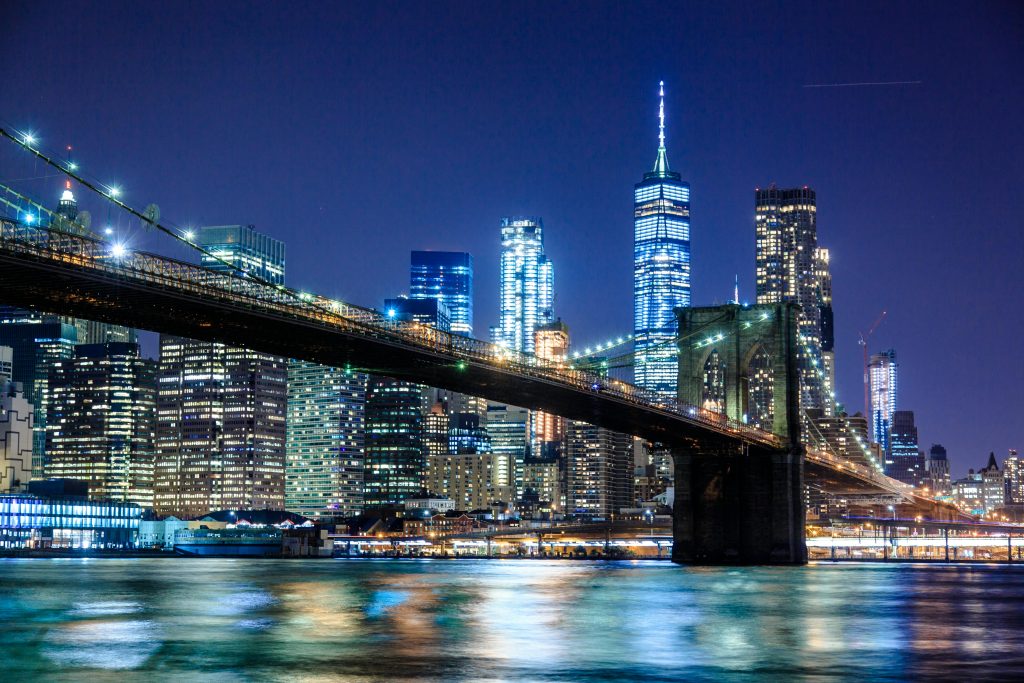I spent a month in Turku in April 2019 – this was my second time in Europe and basically the start of my digital nomad journey. I picked Finland partly because I was curious about Nordic countries and partly because I figured it would be a good place to test out the whole remote work lifestyle.
Turku’s a small city of about 200,000 people in southwestern Finland, and overall it was exactly what I expected from Nordic living – efficient, safe, clean, and cold as hell in April. Not amazing, not terrible, just a decent small European city that taught me some valuable lessons about Nordic reality.
What Turku Actually Is
Turku sits in southwestern Finland and has this interesting Swedish influence since Finland was part of Sweden for centuries. A decent chunk of people speak Swedish as well as Finnish, which gives the city a bilingual vibe that’s unique in Finland.
It’s a proper small city – if you live in the center, you can get anywhere within 10 minutes, which is actually pretty convenient. There’s a nice little river (Aura River) running through the center that gives the place some character and serves as a focal point.
The vibe is very Finnish – quiet, efficient, clean, but also pretty reserved socially. It’s got that Nordic thing where everything works well but people keep to themselves.
The Swedish Heritage That Shapes Everything
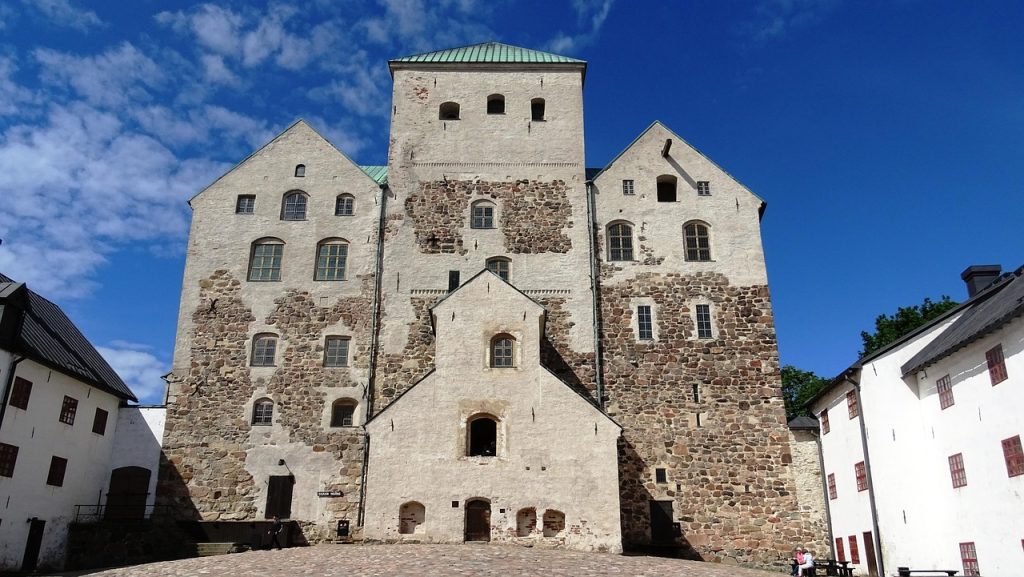
Understanding Turku’s Swedish connection is key to getting why it feels different from other Finnish cities.
Historical Background
- Swedish colonial period: Turku was Finland’s capital when it was part of Sweden (until 1809)
- Cultural significance: Considered Finland’s cultural capital with the country’s oldest university
- Language reality: About 5% of Turku’s population speaks Swedish as their first language
- Modern influence: The Swedish heritage creates a more Scandinavian feel versus purely Nordic
This Swedish influence really shapes the city’s character – it feels less purely Finnish and more broadly Scandinavian, which gives it a slightly different cultural texture than places like Helsinki.
Architecture and City Layout
The Aura River really does give the city character and serves as a nice focal point that makes the place feel less generic than some Nordic cities.
Key Areas and Buildings
- Swedish colonial architecture: Older buildings from the Swedish period with classic Nordic feel
- Turku Castle: Medieval castle from 13th century, one of Finland’s most important historical buildings
- Turku Cathedral: Finland’s national shrine, dating back to 13th century
- Aura River area: Walking paths and restaurant boats during warmer months
- Modern developments: Functional but not particularly charming newer areas
Everything’s walkable in the center with decent public bus system and lots of bike paths. Very Finnish in terms of efficiency and cleanliness.
The April Weather Reality Check
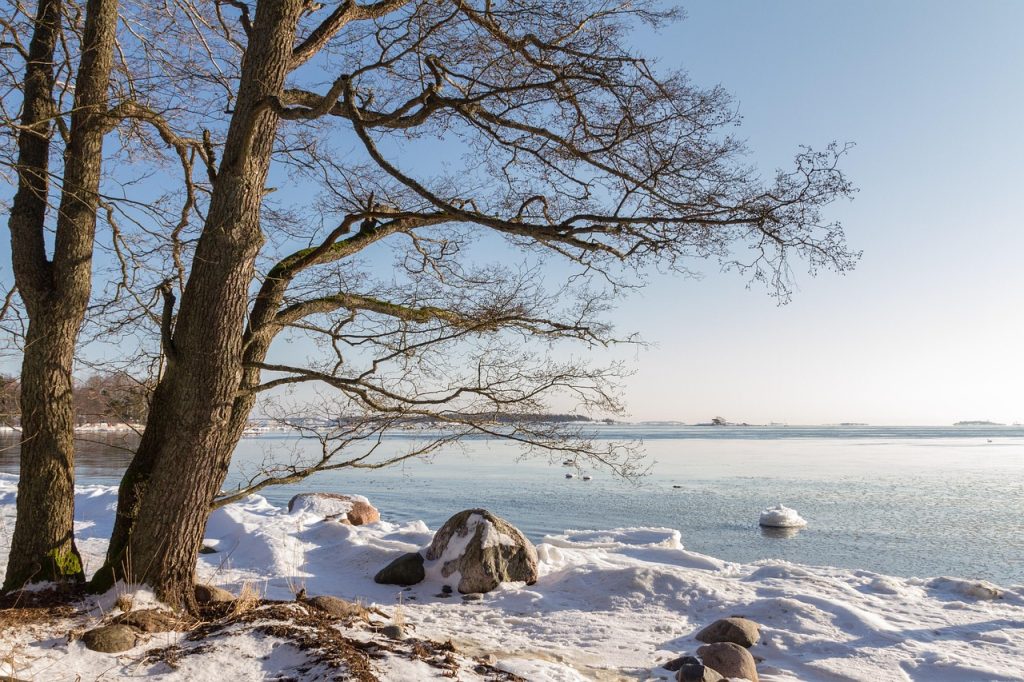
This was a serious reality check about Nordic weather. April in Finland is basically still winter – temperatures around 5-10°C during the day, often overcast and gray.
The lack of sunshine and warmth in what should be spring was genuinely depressing. Don’t underestimate how much cold, gray weather affects your mood when you’re expecting spring conditions.
Seasonal Breakdown
- Summer (June-August): The only time weather is actually pleasant, with long daylight hours
- Spring (March-May): Still cold and gray, not really spring weather
- Fall (September-November): Gets cold and dark quickly
- Winter (December-February): Brutal cold and darkness
April felt like being stuck in perpetual late fall rather than the fresh spring I was hoping for.
People and Social Reality
Finns are famously reserved and quiet. Don’t expect random conversations with strangers – people keep to themselves but are polite when you need help.
English proficiency is excellent, especially among younger people. Finland has some of the best English skills in Europe, so communication is never a problem.
With the University of Turku, there’s a decent student population that makes the city feel a bit younger and more international than it would otherwise.
The social atmosphere is very calm and orderly. People follow rules, everything’s organized, but it can feel a bit sterile socially. Finnish reserve is real and affects the daily experience significantly.
Digital Nomad Experience
Turku worked perfectly for testing out digital nomad life, mainly because of infrastructure and organization rather than excitement or social opportunities.
What Worked Well:
- Internet infrastructure: Excellent – Finland has world-class digital infrastructure
- Work-life balance: Finnish culture supports good work-life balance
- Safety and stability: Zero concerns about safety or basic services
- Cost predictability: Expensive but transparent pricing
What Was Challenging:
- Limited coworking spaces: Small city means fewer options
- Social scene for nomads: Pretty limited – not many other nomads around
- Weather impact: Cold, gray days affected motivation and mood
- High costs: Everything is expensive by global standards
Digital Nomad Rating: 7/10
Perfect for getting nomad routines established because everything works smoothly, but not great for social networking or inspiring environments.
Cost of Living: Nordic Price Reality
Finland uses the Euro and everything is expensive by global standards.
Daily Costs
- Meals: €12-25 (expensive by most standards)
- Coffee: €3-4
- Beer: €5-7 (alcohol heavily taxed)
- Accommodation: €60-120/night for decent places
- Daily budget: €100-170
Monthly Nomad Costs
- Apartment: €800-1,200/month
- Living expenses: €1,000-1,500/month
- Total: €1,800-2,700/month
Expensive but manageable if you’re earning good remote income. Typical Nordic pricing where quality is high but so are costs.
Food Scene: Simple Nordic Fare
Finnish food is pretty basic Nordic fare – fish, potatoes, rye bread, simple preparations. Not particularly exciting but decent quality.
Local Specialties
- Archipelago bread: Dense rye bread that’s actually pretty good
- Fish dishes: Being coastal, seafood is fresh and well-prepared
- Coffee culture: Finns drink more coffee per capita than almost anyone
Swedish influence adds some variety with Swedish dishes and bakeries around the city. Riverside restaurants offer decent food along the Aura River, plus student-friendly affordable options.
Tourist Attractions: Solid for a Small City
Historical Sites
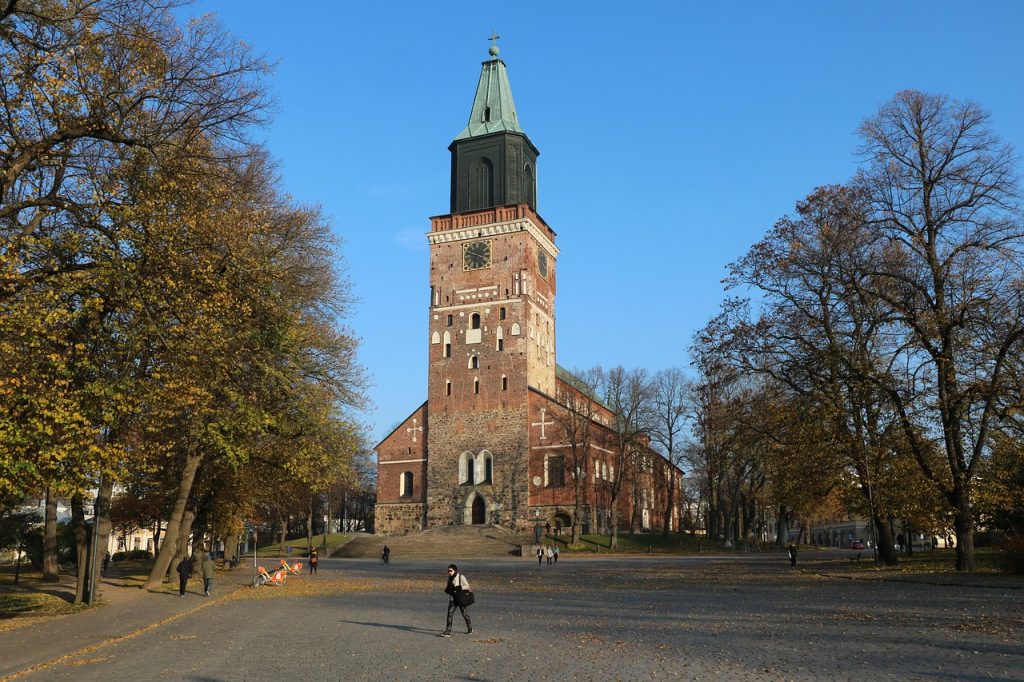
- Turku Castle: Medieval fortress, good for a few hours
- Turku Cathedral: Important religious site with Finnish history
- Old Market Square: Traditional Nordic market square
- Luostarinmäki Handicrafts Museum: Open-air museum of traditional Finnish life
Cultural Attractions
- Turku Art Museum: Decent collection of Finnish and Nordic art
- Sibelius Museum: Dedicated to Finland’s famous composer
- Aboa Vetus & Ars Nova: Archaeological museum built over medieval ruins
Nature and Outdoor
- Ruissalo Island: Nature reserve and recreational area
- Archipelago Sea: Boat trips to nearby islands (much better in summer)
- River walks: Nice paths along the Aura River
For a small city, there’s actually a decent amount to see, though you can cover everything in a few days.
Nightlife and Social Scene: Limited But Predictable
Finnish nightlife is pretty limited, especially in a city this size. Finns tend to drink at home or in small groups rather than big social scenes.
There are some student bars around the university, but nothing wild or particularly exciting. The April timing meant nightlife was pretty dead – cold weather keeps people indoors.
The social scene is probably the weakest aspect of Turku – it’s just not a particularly social or lively city. Weekend scenes are quiet and family-oriented rather than vibrant street life.
Safety and Living Quality: Nordic Excellence
This is where Nordic cities really excel – quality of life and safety are genuinely excellent.
- Safety: Extremely safe with very low crime rates, feels completely secure day and night
- Cleanliness: Very clean and well-maintained, typical Nordic standards
- Organization: Everything works efficiently – public services, infrastructure, civic amenities
- Environmental quality: Clean air, good water quality, well-maintained public spaces
Transportation and Connectivity
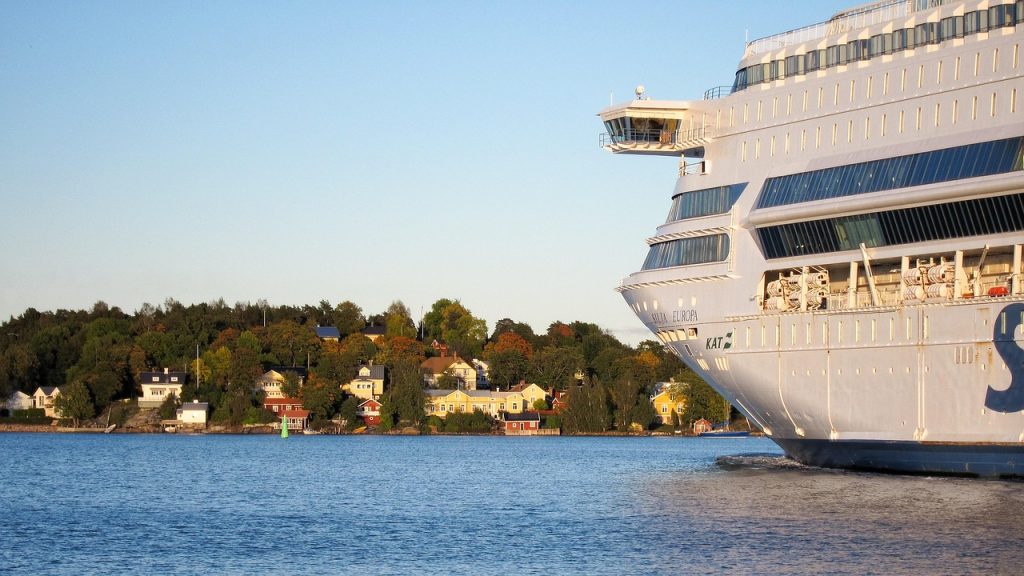
- Public transport: Efficient bus system covering the whole city and suburbs
- Walking/biking: Very walkable center, excellent bike infrastructure
- Regional connections: Good train connections to Helsinki and other Finnish cities
- Airport: Small regional airport with flights to Helsinki and some European destinations
- Ferry connections: Boats to Stockholm and other Baltic destinations
The transport infrastructure is excellent with typical Nordic efficiency and organization.
Cultural Tips and Finnish Etiquette
- Personal space: Finns value personal space and quiet – don’t expect chatty interactions
- Sauna culture: Saunas are serious business – learn the etiquette if you try one
- Punctuality: Be on time for everything – Finns take schedules seriously
- Coffee breaks: Multiple coffee breaks per day are normal and important
- Environmental consciousness: Recycling and environmental responsibility matter
Who Should (And Shouldn’t) Visit Turku
Good For:
- Digital nomads testing Nordic lifestyle
- People interested in Finnish-Swedish culture
- History enthusiasts interested in Nordic heritage
- Travelers wanting quiet, safe European city experience
- Anyone doing a Baltic/Nordic tour
- Remote workers establishing good routines
Skip It If:
- You want vibrant nightlife and social scenes
- You hate cold weather
- You’re looking for exciting tourist destinations
- You prefer warmer, Mediterranean vibes
- You’re on a tight budget
- You need constant social stimulation
Turku vs. Other Nordic Cities
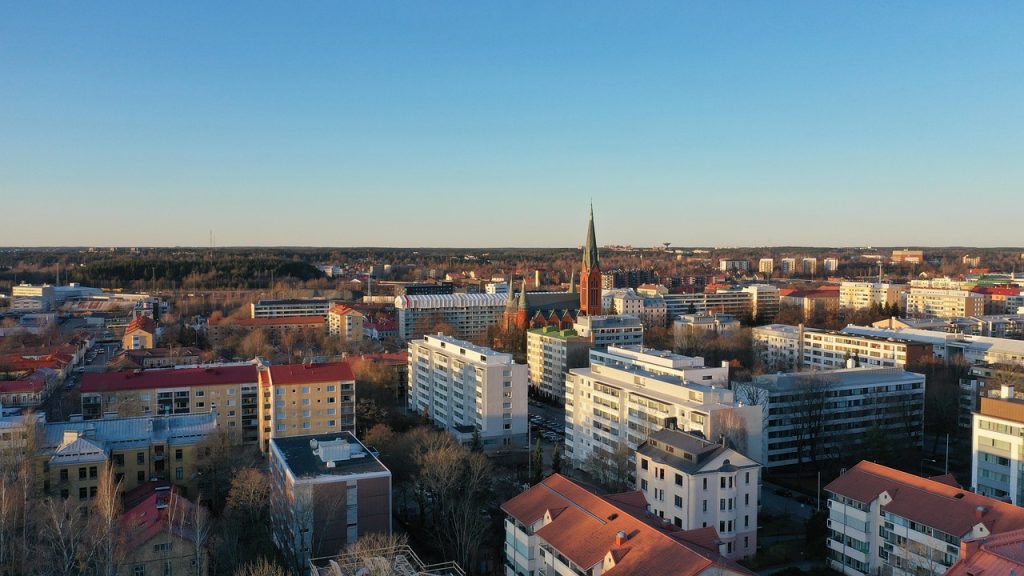
Versus Helsinki: Helsinki is bigger, more international, more things to do
Versus Stockholm: Stockholm is more beautiful and cosmopolitan
Versus Copenhagen: Copenhagen is more lively and bike-friendly
Versus Bergen: Bergen has more dramatic scenery
Turku is probably the most low-key and quiet of the major Nordic cities, which can be either a plus or minus depending on what you want.
My Honest Bottom Line
Overall Rating: 6.5/10
Turku was a decent place to spend a month, especially as an introduction to Nordic living and digital nomad life. The city works well – it’s safe, clean, efficient, and has excellent infrastructure. The Swedish cultural influence gives it more character than some Finnish cities.
But it’s also pretty quiet and can feel boring if you’re used to more vibrant cities. The April weather was genuinely depressing – cold, gray, and still feeling like winter when you expect spring.
Perfect For:
- Testing out Nordic lifestyle
- Quiet, productive remote work
- Learning about Finnish-Swedish culture
- Experiencing excellent quality of life
- Establishing good work routines
Not Great For:
- Social butterflies who need nightlife
- People who hate cold weather
- Travelers wanting exciting attractions
- Anyone on a tight budget
The Digital Nomad Training Ground
Turku worked perfectly for my first real nomad experience because everything functioned smoothly and I could focus on establishing work routines. The infrastructure is excellent, quality of life is high, and there are no major distractions or challenges.
It’s like Nordic training wheels for digital nomading – everything works, costs are predictable, safety isn’t a concern, and you can focus on the basics of remote work lifestyle.
Final Verdict
Good for a month-long experience of Nordic living, probably not great for anything longer unless you really love quiet, cold, efficient cities. Perfect introduction to digital nomad life because everything works and you can focus on work routines without drama.
Turku is a solid, well-functioning small Nordic city that does what it does well. If you want to experience Finnish culture and don’t mind quiet atmosphere and expensive costs, it’s actually quite pleasant. Just don’t expect excitement or vibrant social scenes.
Sometimes the best destinations for getting work done aren’t the most exciting places to visit. Turku falls into that category – excellent for productivity and Nordic cultural immersion, but you’ll need to find your entertainment elsewhere.
Have you tried working remotely from Nordic cities, or are there other “boring but functional” destinations that turned out perfect for productivity? How much does weather affect your nomad experience? Share your Nordic adventures in the comments!
